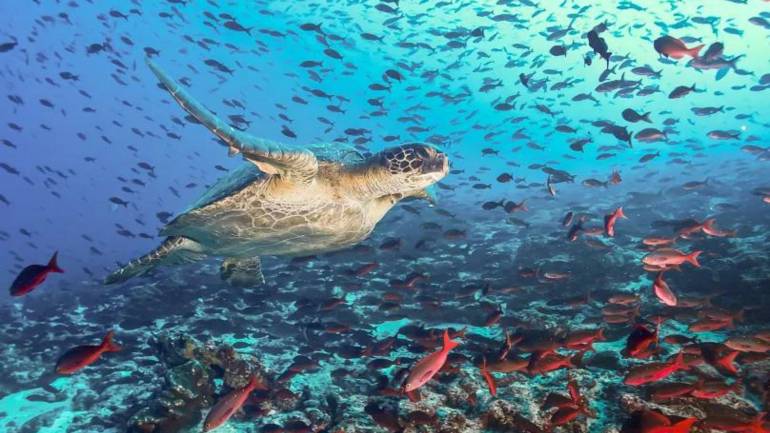Philippines: Advocates urge energy department to prioritize environment, communities in power planning

Protect VIP, a network of communities and groups advocating for the protection of the Verde Island Passage (VIP) marine corridor, on Friday, January 16, urged the Department of Energy (DOE) to take caution on the potential social and environmental impacts of the expansion of power generation projects in the marine biodiversity hotspot.
The VIP houses over 1,736 fish species, 338 coral species, and about 60% of all known shorefish species in the world. Around two million fisherfolks depend on the VIP for their livelihood.
“The DOE reportedly cleared 175 power generation projects to conduct system impact studies (SIS) in 2023, the biggest of which is Vind Energy Corporation’s 3,038-megawatt (MW) NOM FL1 offshore wind farm in Batangas and Occidental Mindoro,” said Protect VIP in a statement.
“We welcome steps that the government is taking to advance renewable energy in the country in the face of the climate crisis. But we note that the energy transition does not need to come at the expense of key biodiversity hotspots and the communities residing in them. It would also be against our climate interests to expand our RE potential without considering the risk of increasing our vulnerabilities if marine and coastal environments are not protected. The DoE should be meticulous in their impact studies and screening of proposed projects,” said Fr. Edwin Gariguez, Protect VIP Lead convenor.
Gariguez was awarded the Goldman Environmental Prize in 2012. He is a parish priest at St. Francis of Assisi quasi-parish in Calapan, Oriental Mindoro, which is near the Verde Island Passage area.
“A study released by Berlin-based global science policy institute Climate Analytics in 2023 reported that the country has the potential to shift to a 100% renewable energy-based power sector while keeping key biodiversity and protected areas away from potential impacts,” said the statement.
“DOE’s list of power generation projects endorsed to undertake SIS from last year included 13 wind and solar projects totaling nearly 7,000 MW in VIP provinces,” it said.
“We have already witnessed the decline in fish catch in areas near the fleet of existing and new gas facilities in Batangas City, and a massive pipeline of additional gas projects is also in the works. We implore the DOE to scrutinize the impacts of such developments, including water contamination, noise pollution, bird strikes, and increased turbidity of coastal waters during construction, to determine how energy projects of this scale can affect the waters of VIP and its communities,” Gariguez added.
In his environmental advocacy, Father Gariguez has been citing Pope Francis’ encyclical Laudato si', which talks about the responsibility of Christians to protect the environment as its stewards.
The 184-page encyclical letter, with the subtitle “Care for Our Common Home,” was published in May 2015. Father Gariguez also said that within the encyclical, the Holy Father said the world must do away with the use of “highly polluting fossil fuels,” which is part of his team’s campaign against LNG projects in the VIP.
Gerry Arances, Executive Director of the think-tank Center for Energy, Ecology, and Development (CEED) and co-convenor of Protect VIP, underscored that the deployment of energy transition should be in the best interest of the people and the environment.
“The imperative of the energy transition is, in the first place, to benefit people and the environment. The country’s shift to a power sector fully powered by renewables can be designed to prevent potential repercussions while facilitating the empowerment of communities and the preservation of critical ecosystems, such as through the development of decentralized and community-based renewables,” Arances said. -(MTV)
Radio Veritas Asia (RVA), a media platform of the Catholic Church, aims to share Christ. RVA started in 1969 as a continental Catholic radio station to serve Asian countries in their respective local language, thus earning the tag “the Voice of Asian Christianity.” Responding to the emerging context, RVA embraced media platforms to connect with the global Asian audience via its 21 language websites and various social media platforms.














